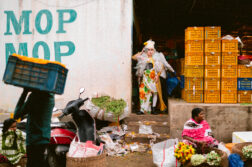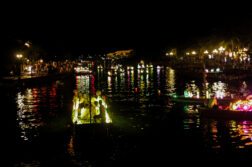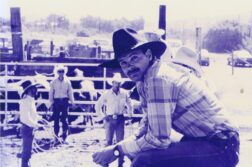
MY FIRST CONNECTION with people and organizations that campaigned for gay rights was my introduction to the Albany Trust in the UK. I was a teenager at the time, when a well-meaning teacher of drama came to my rescue. He had spotted that my eyes tended to drift toward the male figures in the dramatic line up and he was also aware that my father had recently thrown me out on the street for wearing shirts with frilly cuffs—very avant-garde in the mid ‘60’s. So, being the good hearted bloke that my teacher was, he promptly helped me find somewhere safe to stay and took me personally along to the Albany Trust for support.
In a world that seems to emphasize the cynical, we must try to remember there are a lot of good and kind people out there who are willing to put themselves on the line for the sake of a noble cause that only asks for equal rights and decent interaction.
The gentleman at the Albany Trust suggested I attend a regular gathering of young gay men. I say men, but the fact was, we were all in our mid to late teens, boys really—but boys who felt oppressed by a harsh system that was only too willing to call us “poofs” and pillow biters” and tended to kick our heads in, especially if we were a little fey.
The group was run by Richard and Denis. The latter was Denis Lemon, founder and editor of Gay News. The couple had well-appointed digs off High Street Kensington. Once a week, a bunch of young dudes would meet at their place, be served coffee and biscuits, and allowed to be themselves.
This was a wonderful time for me, sharing and endlessly chatting with others without worrying if the glint in my eye might be misinterpreted, and meet with a sharp punch!
This was the first part of my liberation. I had passionate conversations and passionate sex.
My next encounter with activists happened by chance when I attended my first meeting of the Gay Liberation movement in the UK, which took place in a basement in some building in the center of London. It was a raucous event with lots of cheering, lots of drag, and lots of excitement. I had been taken there by a school mate, Julian Hows, who now works for GNP: the Global Network of People living with AIDS. I remember he caused quite a stir once by turning up in the playground dressed in a skirt. He was a brave individual even then. But that was over fifty years ago, and, like so many exceptional acts, it is now lost in the tide of time.
Not long after that I met another equally daring young man, Peter Burton, who went on to help establish the gay magazine Jeremy. It was the first highbrow mag with literary commentary by famous writers, albeit sitting alongside well-formed pecs and ample packages. Peter Burton had started his campaign of poking literary giants out of the closet.

Then came Robin Maugham. Robin—who was to become my mentor, friend, and lover—had been pushing the envelope since his first famous publication, The Servant. In the novella he explores the homoerotic relationship between Tony, the master and Barrett his servant; however, the servant’s assistant with whom the master becomes entangled and eventually rapes, was originally intended to be a boy – but in those days, the 1940’s, he didn’t dare risk the controversy; you can read between the lines.
Then, in 1958, he finished The Wrong People, set in Tangier, which was explicit and uncompromising in its sexual content, however dark. His uncle, Somerset Maugham, who read the book in one sitting, told him not to attempt publication, or else: “They’ll murder you!” The story exposed the under-belly of the sex trafficking of young boys within the context of a simply told narrative.
When I first met Robin Maugham at the tender age of nineteen, I had little idea of his passion and determination to break the slave cartels of sub-Saharan Africa. I wasn’t even aware that this had been the subject of his Maiden Speech in the House of Lords. The only indication I had that he was involved in any campaign at all was when, at a soirée in Knightsbridge thrown by the society photographer Allan Warren, I had an encounter with the musical genius Lionel Bart.
“Come and meet the magical Lionel Bart,” Allan said.
A crumpled figure in a long dark coat sidled toward me, followed by a jostling stream of gleaming wannabes from his recent musical. I knew the composer’s face. I had seen him interviewed on television about his brilliant work Oliver. He was a friend of Robin’s and must have been told I was his new personal assistant, because of his opening line—which he said so quietly that I could hardly hear him—was: “You know, Robin should never have used the word ‘bollocks’ in that interview for the BBC. It was over the top.”
At the time I didn’t have a clue what he was talking about. But, as I was to find out later, my partner had only just been interviewed by Sheridan Morley in the BBC’s Late-Night Line Up program, in which he had openly admitted his attraction to men. The big deal was the fact that Robin had been the first member of the House of Lords to talk openly about his sexual orientation: “I love boys as much as girls and anybody who didn’t understand that bisexuality was a natural condition was talking bollocks!” he had told the startled interviewer.
In my life have met many people who have been examples of fearless campaigning, including Christopher Isherwood—but that’s a story for another day. Therefore, when the hiv/aids epidemic hit hard in the early ’90s and I lost two former lovers to the virus, I had no hesitation but to go on my own crusade. I wrote a play titled Never Walk Alone. With the support of many dedicated AIDS organizations, the drama toured schools, colleges, and universities. My hope is that its safe-sex message made a difference and helped the young people, as I had been helped so many years before.
William Lawrence, born in 1951, is a playwright whose first play, Catwalk, was performed as a stage reading at the Red Lion in Islington, London around 1989, and later adapted for a mainstream audience and posted on YouTube under: Tomorrow Belongs to Nobody. His next play, The Sabre’s Edge (formerly Angel of the Sun) centred around the life of the dancer Nijinsky. And in 2008 he wrote, produced and directed Blue On Blue (a fragment available on YouTube as well). He’s currently in the process of completing an autobiographical work titled: Starlight ‘n Jamtarts – the true story of his search for the missing chronicles of the Second Viscount Maugham.







Discussion1 Comment
Good read. Thanks. I look forward to more